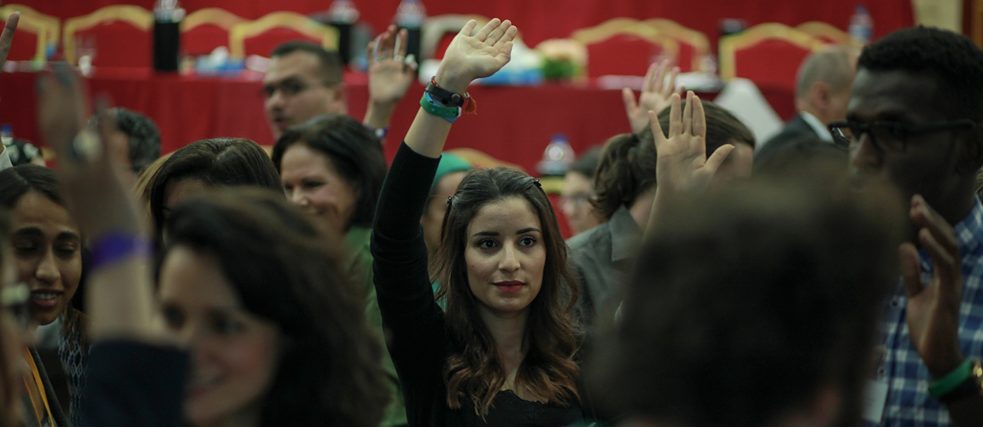Civic Education
Networking for change

Organisations promoting civic education in the Arab world often face difficult working conditions. Connecting NGOs in MENA with one another, and with NGOs in Europe, helps spread expertise and resources.
By Stian Overdahl in line of a media partnership with zenith magazine
Many countries have witnessed counter-revolutionary forces since 2011, as traditional powers try to reassert their position, and clamp down on freedom of expression and association. Moez Ali, a seasoned fighter of corruption in Tunisia and an NGO activist focused on human rights, is blunt when he describes the political dynamic. “Regimes in the Arab world would like to have subjects, they don't want to have citizens who are informed about their rights.”
Yet for Ali, and likewise for many other civil society activists in the MENA region, it’s a challenge they’re meeting headfirst. The vision? To participate in implementing sustainable democracies, where citizens can live freely, have freedom of speech and play a full participatory role. A number of initiatives have been launched by the Goethe-Institut in recent years to bolster the position of civil society in the MENA region, including two civic education conferences (CEC), in Alexandria in 2013 and in Hammamet in Tunisia in 2016, that were organized in close cooperation with the German Federal Agency for Civic Education (bpb).
One outcome from the conference in 2016 was the official launch of the Networking Arab Civic Education (NACE) organisation. This connects NGOs within the Arab region, allowing them to share resources and expertise, and with their counterparts in Europe, in recognition that certain problems – such as migration and radicalisation – are shared by both the north and south Mediterranean countries. It also connects Arab NGOs with organisations in Europe, including NGOs in East Europe, where countries transitioned to democracy after 1990, and which can provide insights into lessons that were learnt as part of that process. In addition, the network is also a powerful advocacy tool for the importance of civic education, says Louisa Slavkova, a founding member and director of Sofia Platform, a Bulgaria-based organisation that promotes democracy.
Meanwhile, these developments come as many citizens in the West, in the European Union and the United States, grow aware that the democratic culture in their own country is not guaranteed, but can be eroded by populism and nationalism. Another threat is apathy. Mona Shahien, founder of Tahrir Lounge@Goethe, relates her experience when she was invited to German schools and universities to talk about the Egyptian revolution in 2011. “I was surprised to find that many young people [in Germany] do not feel how political participation is important. I told them 'You have something, and you have to respect and protect this'. There are a lot of lessons that we need to learn from each other.”
Back to Dialogue & Transition